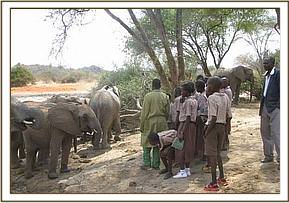Ndovu Team Ithumba Update: 01 July 2010
PARTICPANTS
Patrick Mutuku
Musau Kitulya
Noah Lesirmindana
Lemanten Labarakwe
James Lodungokiyok
2 KWS Rangers
Areas Covered
During the month of July the Ithumba Team patrolled the following areas: Kyamanyenze, Mathae, Kalovoto, Tundani, Power line, Umbi, Gazi general area.
28 Snares lifted
2 Arrested poachers
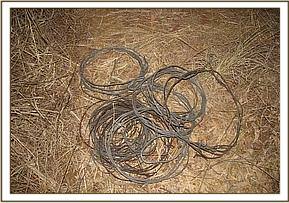
FINDINGS
During the course of the month a total of 28 snares were lifted. The poaching trends seem to have currently shifted from laying of snares to the use of shooting platforms using bows and arrows as well as lamping. The Team found several shooting platforms at waterholes. This was a pointer that big game is being targeted this time of the year. Most of the poachers are aware of the Teams presence and that any snares they set will be lifted, which is a possible contributing factor as to why they have neglected this poaching tactic for the time being.
OBSERVABLE EVIDENCE
The team began its operations by checking on some of the areas that had been patrolled last month to ascertain if there were any poaching activities still taking place. The Team began by patrolling in Kyamanyenze area where it was found that a lot of logging along the river Tiva was being carried out. The tree being targeted a lot is mellia vonkensii. This is a hard wood that is preferred because it is good and valuable timber, and it is never attacked by termites. The loggers had already harvested big logs and moved out. At Umbi area which is mainly a hotspot for logging, was the same story.
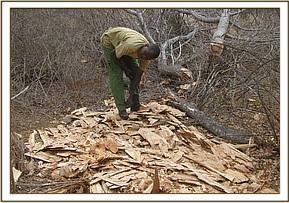
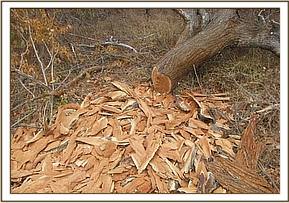

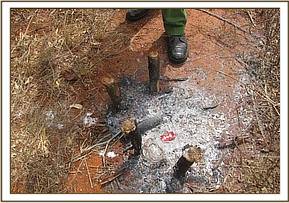
At most of the waterholes visited the Team found old or new shooting platforms.
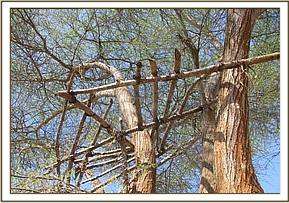
During patrols in the Gazi area, there was evidence of a lot of illegal activities including charcoal burning in the park just along the Athi River.
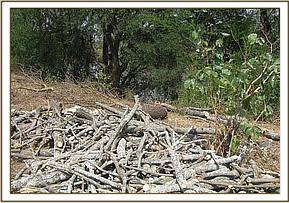
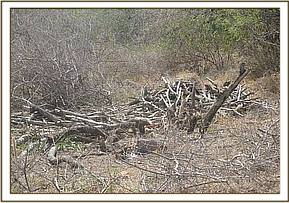
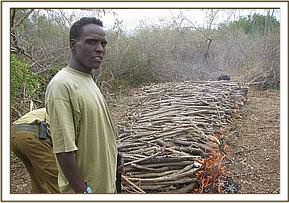
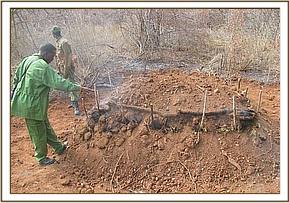
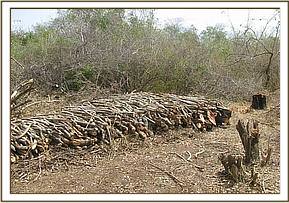
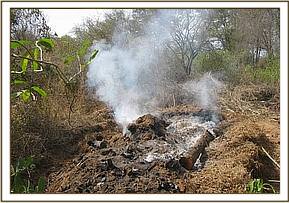

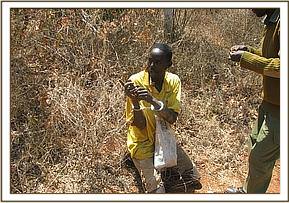
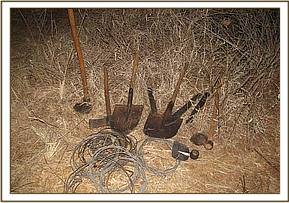
COMMUNITY OUTREACH PROGRAMME
Wildlife Film screening & School trip for Kaluluini primary school
The pupils were shown a wildlife film on 20/7/2010 before going for the trip to the park. This was aimed at preparing the pupils on what they were to see later.
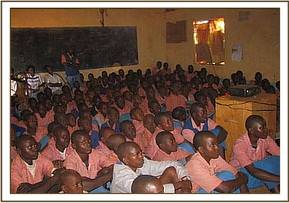

The trip took place on the 22/7/2010, this was the third school trip for the pupils in this school. The pupils were picked up from their school grounds in the early morning. They began their day by climbing Ithumba hill before heading to the elephant mudbath. While there the pupils watched the orphaned elephants raised by DSWT take their milk and enjoy a play in the mud. The elephant Keepers gave a lecture about the orphaned elephants & conservation of wildlife. The students enjoyed this experience thoroughly.
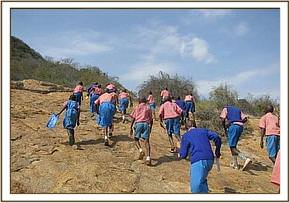
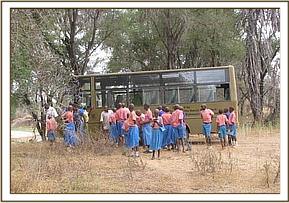
The students were then taken to the Banda’s where they received a talk from the staff there. They were shown around before heading to the Tiva River were they enjoyed game drives and a lunch picnic. Unfortunately following their lunch the bus got stuck in the sand for about three hours. Due to this incident the trip was delayed a little and some of the attraction planned for the afternoon had to be cancelled. Nevertheless the students loved the experience and for the first time were exposed to the wildlife and beauty of the National Park that neighbours their home village.
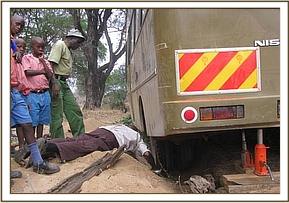

School trip for Kavete primary school
During the trip the students visited some of the main attraction of the northern areas of Tsavo such as the Ithumba hill, the orphans mudbath at noon, games drives, Tiva river, Kiasa Hill, the orphans stockades the Ithumba Camp.
During games drives the students were very excited to see wild elephants at Imenti waterhole and a leopard on their way out. They also saw got to meet a dikdik at the Camp that was rescued by one of the children from the community, and is now being hand raised by keepers and released back into the wild. The pupils went home very happy; such an experience will have a positive influence on these children. During the course of the day some of the children confessed to have eaten bush meat at home. There is a clear indication that more anti-poaching work & community work is needed in these villages.
